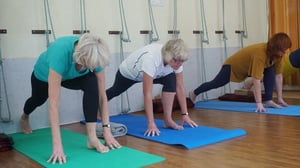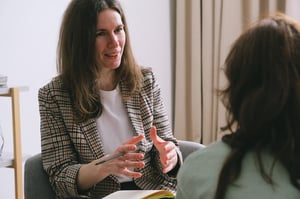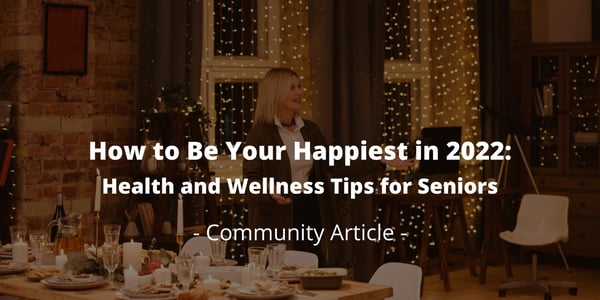As grandparents, we often want to pass on our knowledge and experience to our grandchildren....
5 Tips to Improve Your Self-Confidence
Do you believe in your own capacity to meet life’s challenges? These challenges do not have to be big. It could be as simple as walking up to someone to ask a question, or it could be as difficult as asking for money from someone.
Confidence is the belief in one’s own capacity to meet life’s difficulties and succeed. On top of that, confidence is also the determination to act on that belief. Being confident means being self-assured. It means being at ease with one’s own abilities. A confident person is not someone who believes that they are capable of super deeds; confidence is humbler than that.
At work, in your personal life, or in other social situations, a lack of confidence can inhibit people from taking chances and embracing possibilities. However, too much self-confidence might come across as arrogance or narcissism. Overestimating one’s talents can lead to issues such as not finishing jobs on time or social embarrassment. Self-confidence is not about being superior to others. It means that you are self-aware about your capacity and that you have a realistic assessment of your skills and a sense of security in that assessment.
A confident person would strive to identify their shortcomings and then overcome them. It is by winning these small personal challenges that we are trained to face life’s bigger hurdles. You have undoubtedly come across some super confident person in your life. You might have asked yourself, "Where do they get that kind of confidence?"
The good news is that confidence is not God-gifted. It is a strength that is built within social parameters. Your level of confidence is a component of your character that you have built so far, and you can keep building it. Confidence is acquired and improved over time.
Confidence is also domain-specific. You may be confident about trekking up a mountain but terrified about speaking in public. We all know someone like that, don’t we?
Lack of self-confidence can be the cause of anxiety. Your inability to deal with complex social interactions can plague you with self-doubt. While your confidence may be displayed and noticed by others on the outside, the foundation of self-confidence is both internal and external. It is equally physical as it is psychological. Think of confidence as an internal muscle in your psyche. As with muscles, you can make it stronger with exercise. In this article, we will discuss five ways you can boost your confidence.
5 Ways to Boost Your Confidence!
-
Exercising and Staying Active
 Scientists have repeatedly correlated the role of physical exercise and psychological benefits. Physical activity makes you feel better. Exercise is attributed to an increase in your endorphin levels. This helps reduce stress, tones your muscles, and makes you feel happy. It is really about the mind and body connection. If your body feels capable of performing straining tasks, so will your mind. Exercise builds endurance, and this, in turn, is reflected in how well you endure stress and fear.
Scientists have repeatedly correlated the role of physical exercise and psychological benefits. Physical activity makes you feel better. Exercise is attributed to an increase in your endorphin levels. This helps reduce stress, tones your muscles, and makes you feel happy. It is really about the mind and body connection. If your body feels capable of performing straining tasks, so will your mind. Exercise builds endurance, and this, in turn, is reflected in how well you endure stress and fear.
Exercise does not have to be strenuous sessions in the gym as well. A few short and long walks are enough for you to see the benefits. If you like, you can consider short, slower, and less stressful forms like yoga and breathing exercises as well. -
Eliminating Bad Habits
 Let’s face it, we all have bad habits. It could be something as obvious as smoking or drinking excessively or something as small as staying up late into the night. Bad habits slowly take a toll on our physical well-being as well. In addition, it also lowers our self-perception. Such bad habits can cling to our identity and become a shadow of our personality. Quite often, they become the standard lens through which other people see us. “He’s a smoker!” “She’s lazy!” Such labels and associations will lower our self-esteem. We feel defeated by our habits and ultimately resign in them. This makes us less confident to be ourselves.
Let’s face it, we all have bad habits. It could be something as obvious as smoking or drinking excessively or something as small as staying up late into the night. Bad habits slowly take a toll on our physical well-being as well. In addition, it also lowers our self-perception. Such bad habits can cling to our identity and become a shadow of our personality. Quite often, they become the standard lens through which other people see us. “He’s a smoker!” “She’s lazy!” Such labels and associations will lower our self-esteem. We feel defeated by our habits and ultimately resign in them. This makes us less confident to be ourselves.
By taking small steps like setting routines, and rewarding yourself for not indulging in bad habits, take control over them. By making this conscious effort, we can begin to eliminate them.
Click here to read our post, Improving Every Day: 10 Strategies for Breaking Bad Habits! -
Setting Goals
 Confidence does not need to be built only within social settings. You can work at it alone as well. You can gain a sense of confidence from personal and professional accomplishments.
Confidence does not need to be built only within social settings. You can work at it alone as well. You can gain a sense of confidence from personal and professional accomplishments.
Try setting personal and professional goals. Setting goals and meeting them will become tangible evidence for your self-confidence. By continuing to set and meet goals, you will make yourself believe that you are competent in getting things done. This confidence will help you achieve greater things in life.
Remember we talked about how confidence is domain-specific. Goal setting can help you become better in a field that you are not confident in. Set small goals in a subject that you are less confident about. Go about meeting that goal and see how you feel confident about it over time. Learn more about setting SMART goals -
Asking for Advice, Seeking Feedback, and Speaking with a Professional
 Understanding ourselves can be difficult. Frankly, how does one go about it? What does it mean to understand yourself?
Understanding ourselves can be difficult. Frankly, how does one go about it? What does it mean to understand yourself?
Psychologists use a model called the Johari window to understand the self in two main ways. The first is the one that is known to you, and the second is the unknown one. The known self is not a problem, but the unknown self is, as the name suggests, a mystery for the individual. The catch here is that the things you do not know about yourself may be known to those around you. This is where asking for advice and seeking feedback from others comes in. By listening to your trusted friends, family, and colleagues, you will learn more about yourself. This will identify areas in which you need to work on yourself more. Doing this will make you more confident. Another way is to seek professional help. A counselor or a coach can help you gain an accurate self-assessment of your capacity and capability.
However, asking for advice and feedback is only the first step. The next step is to heed this advice and to work on the recommendation. This next step is entirely up to you. -
Socializing
.jpg?width=300&name=jusfilm-XHK4wqY-V_I-unsplash%20(1).jpg) Socializing can have a lot of health benefits for both your physical and emotional well-being.
Socializing can have a lot of health benefits for both your physical and emotional well-being.
Meeting friends, old and new, can help you maintain a positive outlook toward life. It can even reduce your risk of dementia. You can socialize in big or small numbers; it could be over coffee with a buddy or visiting family.
If you think back at your social interactions, you will see that you have learned many things from different people. Socializing helps you build people skills. We learn a lot from social interactions. By seeing and meeting people, we learn about how they carry themselves and their confidence. Social observation, conscious or not, is a method of learning as well. And finally, what better way to build your confidence while you have a great time?






